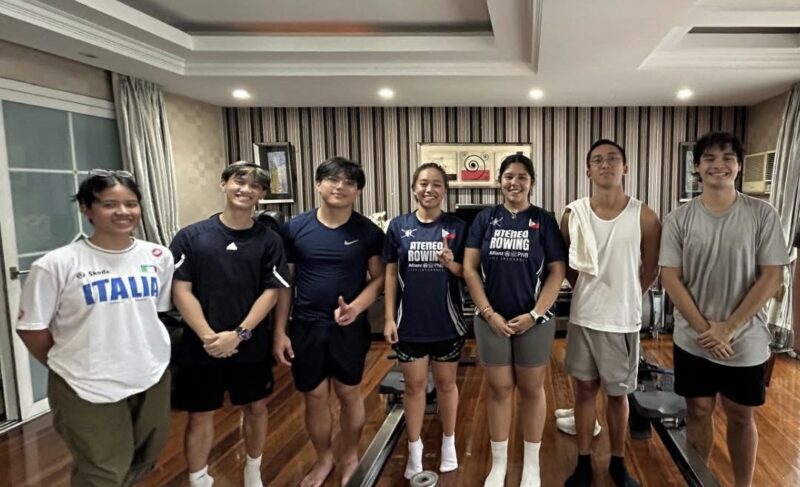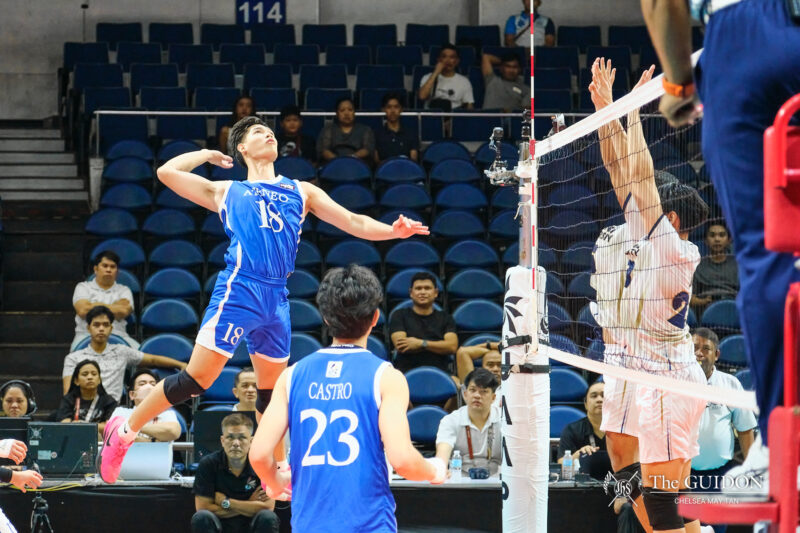EVERYDAY LEADERSHIP—these two words best describe the Ateneo Student Leaders Assembly (ASLA)’s philosophy on service and making a difference.
ASLA is a student-run program which searches, develops, and challenges leaders to go outside the traditional notion of leadership. Every year, they gather promising students from all over the Ateneo schools for a five-day, all-expenses paid Congress on leadership.
Last year, ASLA also launched Dare It Forward, a project exemplifying their culture of everyday leadership. Students were dared to commit seemingly simple acts like buying a kid a meal, greeting a security guard, and even giving your terror teacher a hug.
“All these little things contribute to creating the culture of leadership we want to see: where young Filipinos actively commit to bringing about change in his or her own sphere of influence,” says ASLA Moderator Joseph Quesada (AB MEco ’02).
A leadership culture
ASLA was introduced 2002 under the Sanggunian as a response to a need for leaders. “Because the previous generations of leaders have failed us, often having made too many self-centered decisions, we want to help change things with values such as true servant-leadership and genuine love,” their primer says.
Every year, 35 potential student leaders are selected to attend the ASLA Congress where they are guided to be leaders of their communities, and of the country.
Student leaders are taught skills like teamwork, which are essential to their formation as leaders, during the Congress.
“[ASLA] doesn’t just focus on one’s leadership skills,” says Candice Dominique Montenegro (IV AB Comm), ASLA Batch 6 alumni. “It forms you as a person, and that’s what’s gonna [sic] make you a better leader in your org, in your family, and in your immediate society,” she says.
Aside from strengths, student leaders discover personal weaknesses through the Congress’ various group dynamics and activities.
The leaders’ humility and ability to cooperate with each other are tested. Jeffrey Ray Cape (III AB Comm) of ASLA Batch 6 says, “[In ASLA], all of us were accepted because we were all leaders. So…who steps down, sinong magli-lead sa mga (who will lead the) leaders?”
Aside from the leadership formation, “Aslans” also bond and create relationships with fellow ASLA alumni. “The wonderful thing about ASLA is it’s a community, so we’re all there to support each other in times of need,” says ASLA Program Director Margarita Patricia Valdes (IV AB Comm).
As of press time, ASLA is searching for leaders who will comprise the 7th batch of their students’ congress.
Hugs and terror teachers
“What we learn in ASLA is not limited just to the 35 students…[we hope] they share their experience on what is ASLA, on how they can be [leaders],” says Ateneo Association of Communication Majors President Rachel Mary Garcia (IV AB Comm). Garcia belongs to ASLA’s Batch 6.
The formation of student leaders is not bound by the five days of the Congress. “Actually, ASLA begins after the Congress,” says Cape. “The Congress starts the ripples of change.”
Dare it Forward (DIF), launched to promote the principle of “everyday leadership,” is one of those ripples of change. DIF was ASLA’s effort to show the student body how simple, good deeds can help the country.
In DIF, students buy a dare and accomplish it. Last year’s dares ranged from helping a friend do his or her homework to hugging a terror professor.
Leadership does not necessarily mean people who fill up the executive boards of organizations, or those who are part of the Sanggunian, says Valdes. “It’s in you and me, in the everyday people too,” she says.
“Leadership really is just about the everyday experiences and the things we do to change them,” says Montenegro.
Fresh
Students who have been under the ASLA program have acquired a different perspective on leadership.
“[ASLA] definitely gave me…a multi-faceted and fresh take on leadership,” says Hannah Sabrina Cocos (II AB Eco-H), last year’s SOSS Freshman Executive Officer and part of ASLA Batch 6.
Cocos says she learned important values like patience and silence in leading from ASLA, which still helps her even after being in the Sanggunian. “The values ASLA taught me [are] very helpful in my other leadership endeavors.”
Freshman Orientation Seminar Head Aldo Tong (IV BSM AMF) says ASLA helped him become open to many possibilities. “Whatever it is that I am doing, I always think of collaborating with groups or organizations or sectors whom I know can help,” says Tong.
“At the end of the congress, I had more self-confidence and was more sure of myself and my capabilities,” he adds.
ASLA alumni have proven successful beyond the Ateneo. Notable Aslans include Reese Fernandez (BS Mgt ’07), executive director of Rags2Riches, Patrick Dulay (BS MIS ‘05), founder of Orgforward.com, and Angela Ferreria (AB Eu ‘05), owner of Kaffe Café.
Spread the word
For Valdes and Quesada, the biggest challenges they face in forming leaders are the formation itself and sharing the leadership experience to other people.
Valdes says that, in forming leaders, a person should learn through his or her own personal experiences. “You don’t teach a person sensitivity by telling him outright to be sensitive.”
“A better way would be immersing him in a situation that requires sensitivity, then seeing the idea come out in his insights,” she says.
Quesada believes that the challenge in formation lies in sharing the leadership message to as many people as they can. “That is the only way we can move closer to the culture of leadership we want to achieve.”






